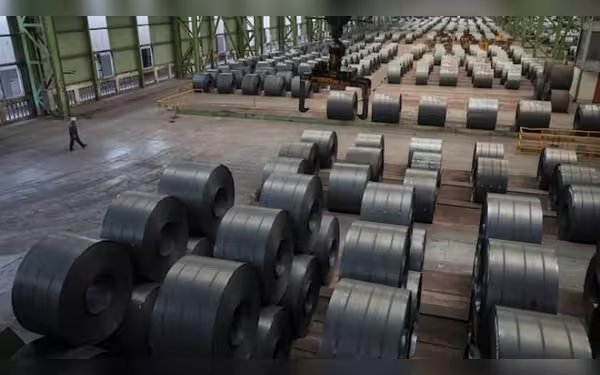Wednesday, November 27, 2024 05:35 PM
Century Steel Group Threatens Withdrawal from Pakistan Investment
- Century Steel Group warns of plant dismantling.
- Investment withdrawal if issues remain unresolved.
- Government committee formed to address investor concerns.
 Image Credits: geo
Image Credits: geoCentury Steel Group warns of dismantling its plant in Pakistan unless urgent issues are resolved, highlighting investor concerns.
In a significant development for Pakistan's industrial landscape, the Century Steel Group, a prominent Chinese steel manufacturer, has issued a stern warning regarding its operations in the country. The company has threatened to withdraw its investment and dismantle its plant if its demands are not addressed promptly. This alarming notice was conveyed in a letter directed to Prime Minister Shehbaz Sharif, highlighting the growing concerns of foreign investors in Pakistan.
According to the letter from Century Steel Group's CEO, Li Chunjian, the company has faced numerous unresolved issues with government departments responsible for managing foreign direct investment (FDI) in the China-Pakistan Economic Corridor (CPEC) Rashakai Special Economic Zone (RSEZ) located in Khyber Pakhtunkhwa. The CEO emphasized that the company had high aspirations when it entered Pakistan, intending to establish the largest steel mill in the country in three phases. However, the lack of resolution to their problems has led them to consider exiting the market.
In the letter, the company stated, "This will be our last notice to the Government of Pakistan; if the problems are not resolved immediately, we will start dismantling the plant from the RSEZ." This statement underscores the urgency of the situation and the potential loss of investment that could follow if the issues remain unaddressed.
To address these concerns, the Prime Minister has formed a committee led by Federal Minister for Communications, Privatisation, and Board of Investment Abdul Aleem Khan. This committee includes representatives from both the Khyber Pakhtunkhwa and federal governments, aiming to resolve the complaints raised by Century Steel Group.
The company has already invested over $30 million in the first phase of the project, with plans for a total investment exceeding $200 million. They anticipated producing 500,000 tonnes of steel annually, with a long-term goal of reaching a capacity of 1.5 million tonnes. However, the ongoing issues, including high land prices, power supply challenges, and bureaucratic hurdles, have severely hampered their operations.
In their letter, Century Steel Group expressed frustration over the lack of stable and cost-effective power supply, which is crucial for steel production. They stated, "We are now forced to look for arranging our own power from other means like investment into solar power plant nearby RSEZ, increasing the overall capital investment away from our core steel business." This shift in focus could divert resources from their primary operations, further complicating their business model.
The company also highlighted the adverse effects of rising power prices and taxation on the steel industry, noting that two large-scale steel mills in Pakistan have already shut down due to unsustainable taxation. They pointed out that the lack of strict quality control in steel production has allowed substandard products to flood the market, further jeopardizing the viability of large-scale operations.
Moreover, the letter raised concerns about the security protocols imposed on their operations, which have increased business costs and hindered the movement of personnel. The company reported that some employees were placed on a blacklist by agencies for unknown reasons, adding to their operational challenges.
As the Century Steel Group contemplates its future in Pakistan, the situation serves as a wake-up call for the government to prioritize the needs of foreign investors. The success of special economic zones and the attraction of foreign direct investment are crucial for Pakistan's economic growth. If the government fails to address these pressing issues, it risks losing not only this investment but also the confidence of other potential investors.
The warning from Century Steel Group is a critical reminder of the challenges faced by foreign investors in Pakistan. The government must take immediate action to resolve these issues and create a more conducive environment for investment. By doing so, it can ensure the growth of industries that contribute significantly to the country's economy and job creation.













